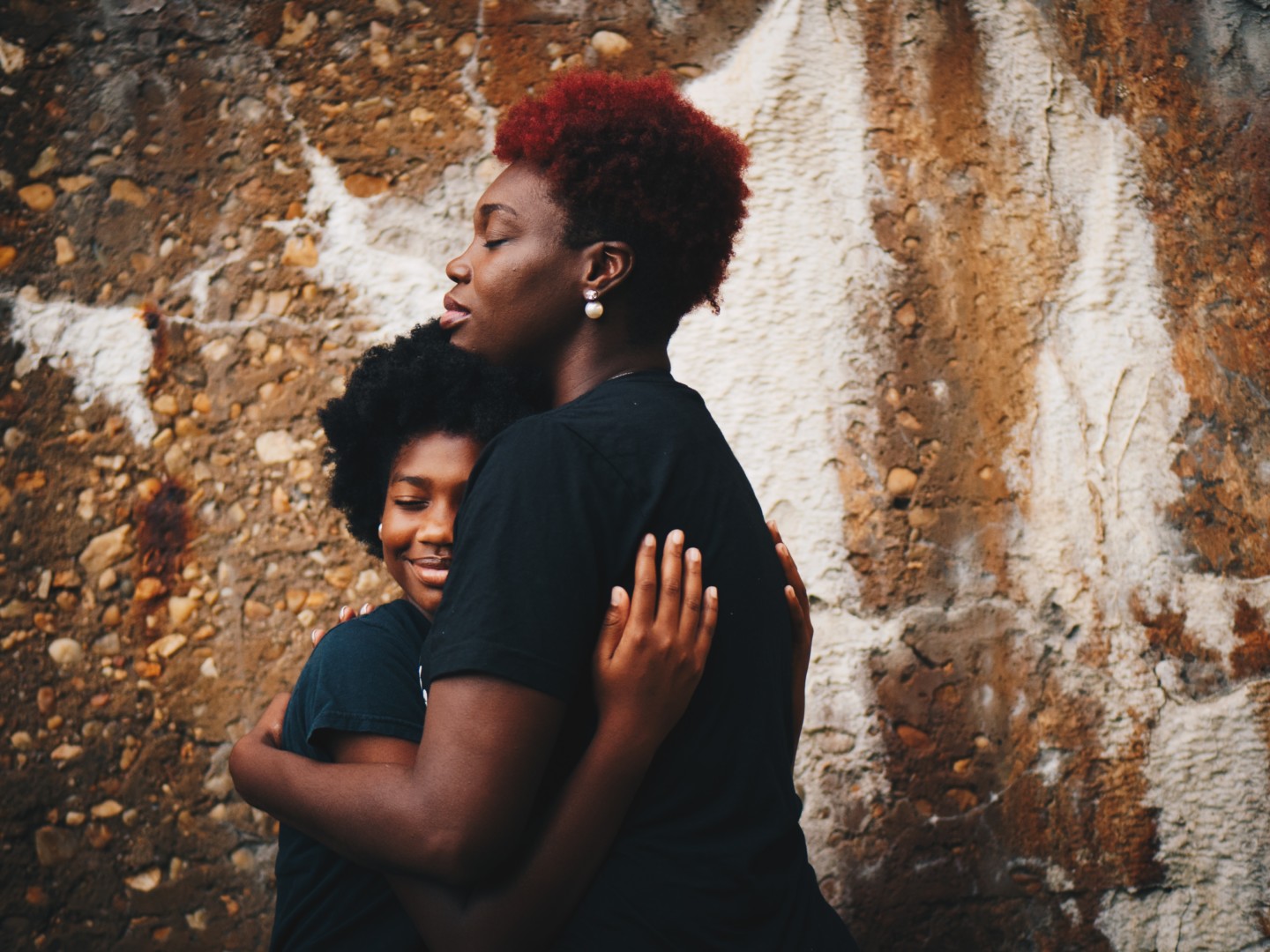Do you ask yourself what anxiety symptoms look like? Or maybe you think your child has anxiety but you aren’t sure if you’re going crazy or if you’re onto something. If you have felt hopeless about how to help your worried child, then you’re in the right place. To understand more about anxiety and worries and fears, keep going…

Anxiety – What is it Anyway?
Anxiety is intense feelings of being afraid, nervous, tense or worried. It’s a feeling that is too strong for the situation, goes on too long and gets in the way of your child’s normal life. And of course, it gets in the way of your day to day living too.
Being afraid is normal for survival in situations of real danger. Sometimes the feelings transfer to situations that are not actually dangerous. It’s adaptive or helpful if you step into a busy road and there is a car coming right for you. Your body signals you to GET OUT OF THE ROAD! This is called a “flight, freeze or fight” response. It’s triggered by an almond shaped part of the brain called the amygdala. That same “get out of danger” response can also happen when you’re not in real danger. When it’s your thoughts that make you think you are in danger but in fact, you are not.
The same is true about worry. Worrying can be helpful. Like when it is important to prepare and consider possible things that could go wrong. But worrying about many things all the time is very exhausting. It’s like a smoke alarm that goes off all the time, even though there is no smoke or fire. All anxiety problems involve being too afraid or too worried. When fear and worry are not necessary, or they are too strong and disrupt normal life, it is important to get help.
There are several different types of anxiety disorders. The type of anxiety your child may have relates to what their fears and worries are about. And how they cope with them. Separation anxiety is extreme worry. Worry that something bad will happen if your child separates from you. This can make going to school a real issue for some families. Generalized anxiety is having extreme and constant worries about many different things. Social anxiety is extreme fear of humiliation in social situations. Phobias are unrealistic and extreme fears of situations or things (e.g., snakes, flying). Panic is the fear of dying or having a heart attack because of physical feelings of anxiety.
Anxiety is a very common mental health problem. In 2009, researchers estimated the prevalence of anxiety among children and adolescents to be about 8%. And between 2007 and 2012, there has been a 20% increase in the diagnosing of anxiety. This increase over time in the prevalence of anxiety is also present in adults. A 2015 study states that 34% of adults are affected by anxiety in their lifetime.
The Anxiety Symptoms You May Have Noticed in your Child
Feelings:
Heart pounding. Numbness or tingling in fingers. Outbursts of irritability or anger. Trouble falling or staying asleep. Sweating and muscle tension. Nausea or stomach aches. Trouble concentrating, jumpiness, trouble breathing, dizzy, faint or lightheaded. Trembling and shaking.
Thoughts:
Thinking that danger is everywhere. Thinking a thing or situation is very dangerous when it is not. Worrying way too much about bad things happening. Constant thoughts or images of bad things happening.
Behaviors:
Avoiding situations, people or things (e.g., flying, social situations, memories). Clinging to safe people or refusing to leave them. Temper tantrums or outbursts when faced with separation or feared situations, repetitive rituals.
Causes of Anxiety
Anxiety isn’t caused by any one thing. It usually happens because of a bunch of things! It can because of bad experiences. Too much stress hormone like cortisol in the body. Chronic illnesses and/or neurochemicals in the brain and stomach not in balance. Yes! Neurochemicals produce in the gut too. Instability and unpredictability at home or at school are also common causes. Sometimes a particular event can create more worries and fears. Moving house or changing classrooms within a school for example. Anxiety can run in the family. If you or your partner has anxiety, your child may be more likely to experience it too.
When To Get Help
It is important to know when the scared feelings and worried thoughts are too intense. This is usually when anxiety gets in the way of being able to do what you normally do. If going to school or going to bed for example become increasingly hard for your child to do. The main way that children cope with anxiety is by avoiding their fears and worries. This coping strategy works very well in the moment. It lowers the anxious feelings right away (e.g., staying home, not going to school, etc).
The problem is that avoiding it, never solves the problem in the long run! Avoidance can become a problem in itself. Sometimes, avoiding can turn into distracting. And that too can become a problem. Avoiding things you are afraid of gets in the way of normal life like going to school and having friends. Other times, avoidance can be risky or harmful. Like a teenager who goes drinking to avoid his or her feelings.
Treatment
The good news is that there is help! At Warrior Brain, I use the most helpful evidence based practice there is out there to help you and your child. Cognitive Behavioral Therapy (CBT). CBT is a problem-focused intervention. It teaches how to change unhelpful or unrealistic thoughts. And how to learn new behaviors like helpful coping skills.
Anxiety problems decrease more with CBT than with any other non-specific therapy. This is true for different types of anxiety. For boys and girls, and for children from different ethnic and racial backgrounds. CBT for anxiety involves education, and gradual exposure to fears in a safe way. It also involves emotion regulation, correcting unhelpful or untrue beliefs, and parental support. CBT is the most proven evidence-based treatment for children with an anxiety disorder.
Antidepressant medicine can also provide needed relief. These medicines work on the brain and uplift and calm down moods. Medicine is usually not the only treatment but are sometimes prescribed alongside therapy. I do not prescribe medication, but can refer you on to a psychiatrist if that is an avenue you would like to explore.
Here is another helpful article you might find helpful.
FAQ
Always feel free to ask me any questions you have as we begin to work together. Below are some questions I often get from parents and they may be helpful to you too:
Q: How many sessions? How long will therapy take?
A: I wish I knew the answer to this! The pace I go at is the pace you and your child go at.. I will never push the pace of therapy for your child or teen further than what they are willing to go. I have made that mistake before. It doesn’t end the way you or I want it to! Generally, a treatment plan will look at 3 months or 12 – 15 sessions. A treatment plan will look at what you and your child’s expectations are for the next 3 months. What will look different after those 12 – 15 sessions? How will things have changed? How will we know we have finished with therapy?
Q: What can we do as parents to help?
A: You have done your child a huge service by reaching out for help. I will likely be seeing you and/or your child for one hour a week. After this one hour, there will be some ideas that we talk about that I hope you will practice at home. ALWAYS ask questions. No question is too silly. And no situation is too hopeless. I won’t always have the answer, but I promise that together we will figure it out!
Q: What can we expect as we start sessions with you?
A: Therapy is not easy. It’s actually very hard work for you! Things might get worse before they get better. Before, it might have been easier to avoid the problem. Or your child may have learned some negative coping skills that we need to now unlearn. So as I begin to uncover your child’s true feelings and thoughts with you and your family, your child might act out. They door might slam that much louder than normal, at least in the beginning. It will get better! The more you talk with me about this, the more helpful I can be to you.
If there is another question you may have, PLEASE ask me! I want to answer all your questions and make sure you feel empowered throughout this process. Thank you for trusting me with your family. I am grateful for you.
TOP TIP:
Be confident in asking your therapist questions. Do not be shy! The more you know, the happier we are (there is power in knowledge!) and the smoother the process is for everyone involved.
If you enjoyed this article, you may want to read this story on How to Help Your Shy Child Make Friends.

